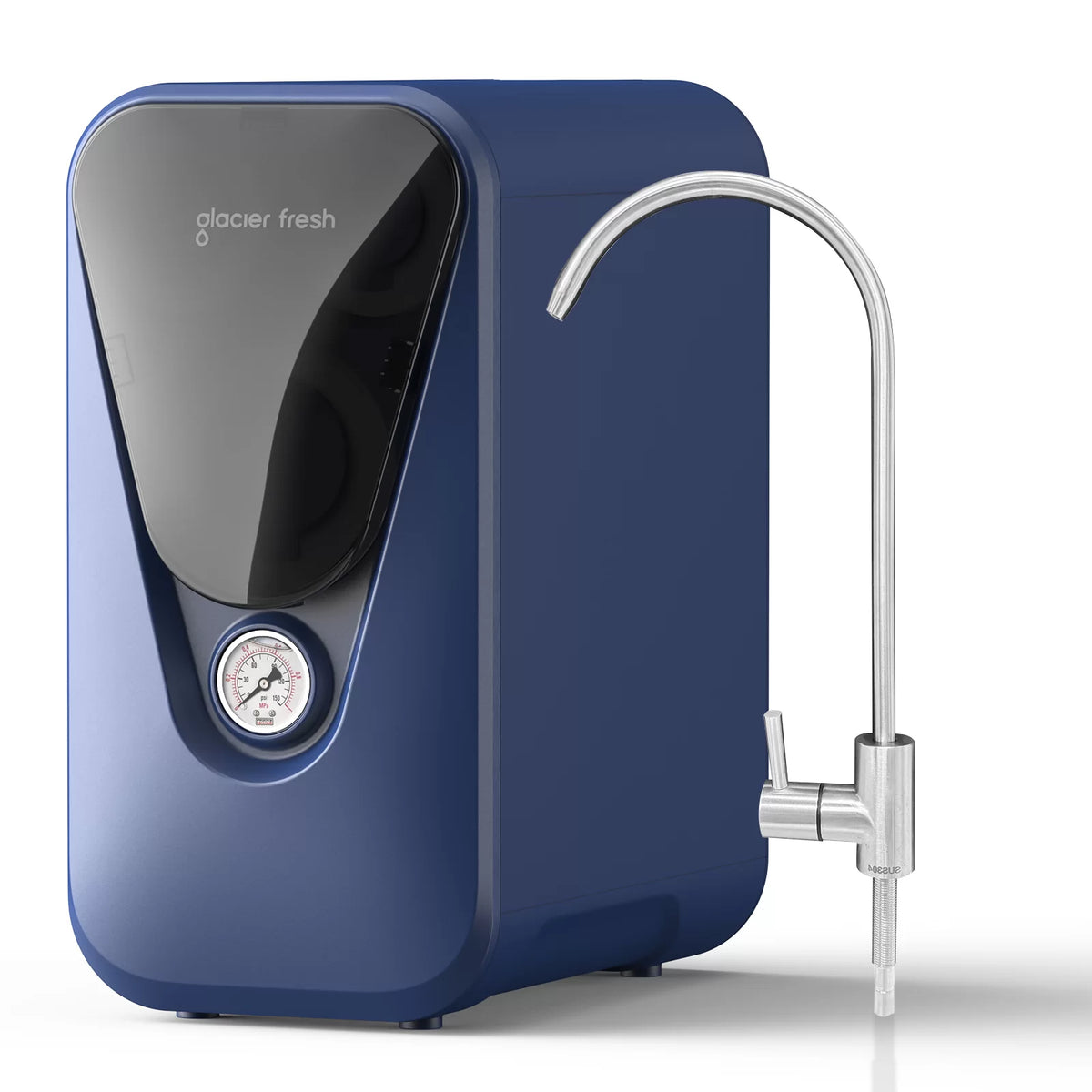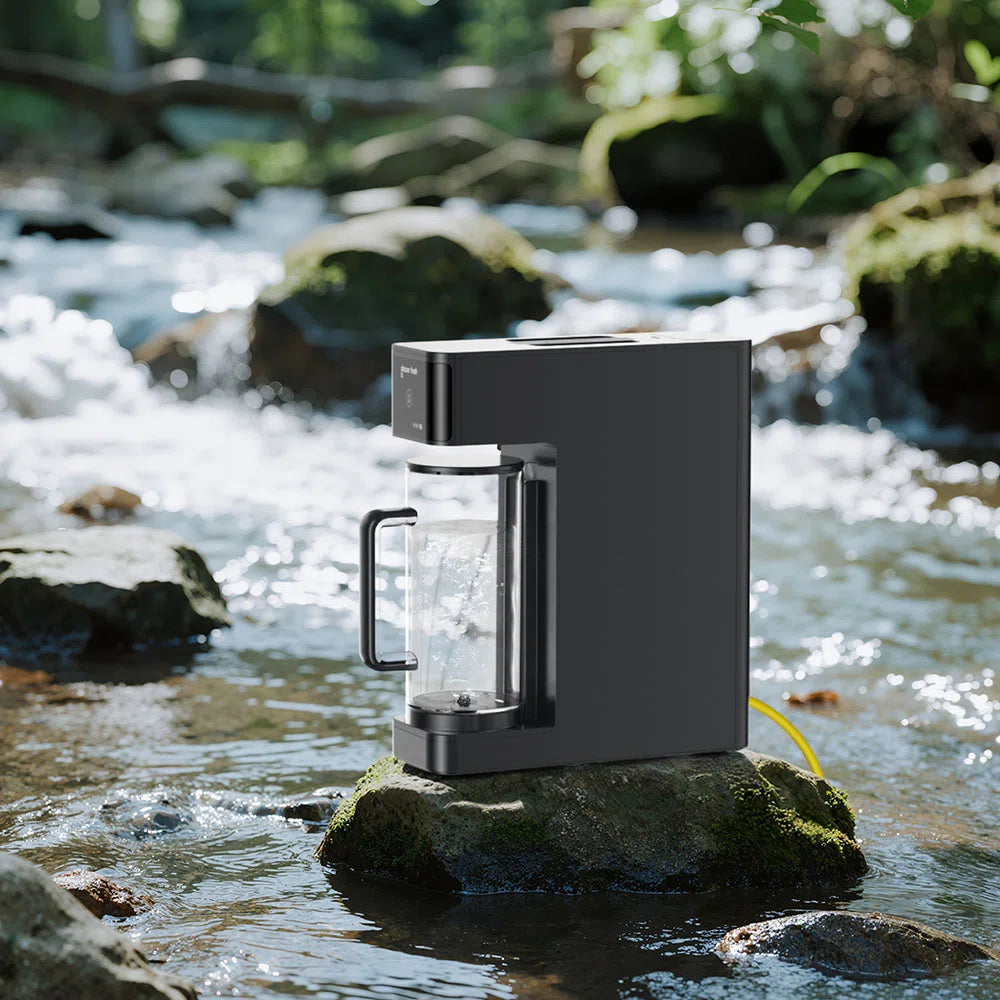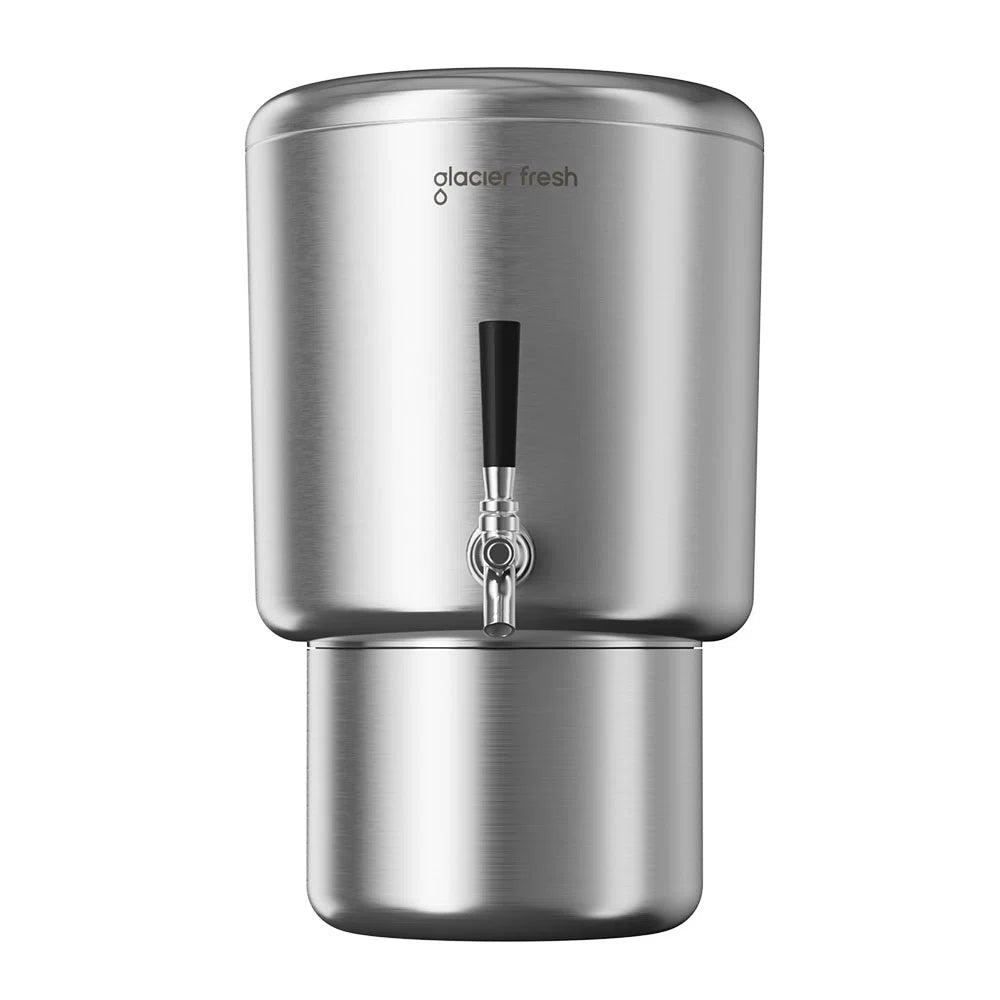Table of Contents:
Understanding the basics of magnesium
The health benefits of magnesium in water
Potential risks and precautions of magnesium in water
Magnesium supplements vs. magnesium in water: what`s the difference?
Magnesium deficiency: causes and symptoms
Current research and studies on magnesium in water
FAQs
Conclusion
While we often focus on the importance of hydration, we may overlook the significant role that certain minerals, like magnesium, play in the water we consume. Magnesium, a crucial nutrient for the human body, offers numerous health benefits when consumed through water. In this article, we explore the role of magnesium in water and its various benefits for our health and well-being. From promoting heart health to aiding digestion, magnesium-rich water can profoundly impact our daily lives.
Understanding the basics of magnesium
Definition and importance of magnesium
Magnesium plays a crucial role in maintaining overall health and wellness. It's an essential mineral that must be included in your dietary intake to support various bodily functions—magnesium's importance lies in its cardiovascular health regulation. Adequate magnesium levels can help in preventing cardiovascular issues and maintaining a healthy heart. Additionally, magnesium is vital for bone health and preventing conditions like osteoporosis.
Sources of magnesium in the diet
Exploring the various dietary sources of magnesium provides insight into how this essential mineral can be obtained for optimal health and wellness. Magnesium-rich foods play a crucial role in meeting your daily requirements and reaping the benefits of magnesium. Here are three ways you can incorporate magnesium into your diet effectively:
- Leafy Greens: Spinach, kale, and Swiss chard are excellent sources of magnesium. Incorporating these greens into your meals through salads, smoothies, or sautéed dishes can boost your magnesium intake.
- Nuts and Seeds: Almonds, cashews, pumpkin seeds, and sunflower seeds are packed with magnesium. Snacking on a handful of these nuts and seeds or adding them to your breakfast oatmeal can be a tasty way to increase your magnesium levels.
- Whole Grains: Foods like quinoa, brown rice, and oats aren't only nutritious and contain magnesium. Including these whole grains in your meals through cooking methods like boiling or steaming can enhance magnesium absorption rates, ensuring you benefit fully from this essential mineral.
Recommended daily intake of magnesium
The daily requirements for magnesium intake vary based on age and gender. The recommended daily intake for adult males is around 400-420 mg, while for adult females, it's slightly lower at 310-320 mg.
Several factors, such as the presence of other nutrients like vitamin D and calcium, influence magnesium absorption. Dietary sources rich in magnesium include nuts, seeds, whole grains, and leafy green vegetables. Meeting the daily magnesium requirements can have significant health benefits, such as reducing the risk of heart disease, improving blood pressure levels, and enhancing exercise performance.
The health benefits of magnesium in water
Regulation of blood pressure and cardiovascular health
Magnesium in water plays a crucial role in regulating blood pressure and maintaining cardiovascular health by supporting various physiological processes. Here's how it benefits you:
- Stress management: Magnesium helps regulate cortisol levels, the stress hormone, promote relaxation, and reduce anxiety, which is vital for a healthy heart.
- Heart health: Magnesium supports muscle function, including the heart muscle, to maintain a steady heartbeat and cardiovascular function.
- Hypertension prevention: Magnesium helps lower blood pressure by relaxing blood vessels and improving blood flow, reducing the risk of hypertension and related heart issues.
Moreover, magnesium in water contributes to optimal vascular function, ensuring that your blood vessels can efficiently transport oxygen and nutrients throughout your body.
Promotion of bone health and prevention of osteoporosis
Magnesium is crucial for calcium absorption and maintaining strong and healthy bones. By ensuring adequate magnesium intake through water, you support the body in effectively utilizing calcium to build and maintain bone density.
Moreover, magnesium aids in hormone regulation, particularly hormones involved in bone metabolism, thus promoting overall bone health. It also contributes to muscle strength, vital for supporting the skeletal system and reducing the risk of fractures.
Additionally, magnesium supports joint health, potentially alleviating discomfort and enhancing mobility. For post-menopausal women more susceptible to bone density loss, ensuring sufficient magnesium intake from water can be especially beneficial in preventing osteoporosis.
Improvement of sleep quality and regulation of circadian rhythms
Magnesium promotes better sleep by influencing various sleep patterns and body clock aspects. Here's how magnesium benefits your sleep and overall wellness:
- Promotes melatonin production: Magnesium helps the body produce melatonin, a hormone that regulates sleep-wake cycles. By ensuring adequate melatonin levels, magnesium can improve your ability to fall asleep and stay asleep throughout the night.
- Regulates sleep patterns: Magnesium aids in stabilizing sleep patterns, making it easier for you to maintain a consistent and restful sleep routine. This can improve overall sleep quality and feeling more refreshed upon waking.
- Supports body clock function: Magnesium regulates the body's internal clock, known as the circadian rhythm. By supporting the body clock, magnesium can help establish a healthy sleep-wake cycle aligned with natural daylight and darkness cues.
Maintenance of blood sugar levels and prevention of diabetes
Magnesium is crucial in regulating blood sugar levels by improving insulin sensitivity, which helps your body efficiently use glucose for energy. This mineral also aids in preventing complications associated with diabetes, such as nerve damage and heart disease, while managing symptoms like frequent urination and increased thirst.
Ensuring an adequate magnesium intake through water consumption enhances overall health and lowers the likelihood of developing type 2 diabetes. Studies have shown that individuals with higher magnesium levels have a reduced risk of developing diabetes compared to those with lower levels.
Potential risks and precautions of magnesium in water
Adverse effects of excessive magnesium intake
Excessive magnesium intake from water sources can lead to various potential risks that individuals should be aware of and take precautions against. While magnesium is essential for health, too much can adversely affect the body. Here are some key considerations to keep in mind:
- Toxicity symptoms: Excessive magnesium intake can cause nausea, vomiting, and diarrhea. Monitoring your magnesium intake is crucial to avoid these unpleasant effects.
- Digestive issues: High magnesium levels in water may exacerbate digestive problems like bloating and abdominal discomfort. It's important to be mindful of your magnesium consumption, especially if you have a sensitive stomach.
- Kidney health: Overconsumption of magnesium can put a strain on the kidneys, potentially leading to complications in individuals with pre-existing kidney issues. Consulting a healthcare provider for guidance is advisable.
- Hypermagnesemia risks: In severe cases, hypermagnesemia, a condition characterized by elevated magnesium levels in the blood, can occur. This condition can have severe consequences and requires immediate medical attention if suspected. Be cautious with your magnesium intake to prevent this condition.
Interactions with medications and health conditions
Magnesium in water can interact with certain medications, leading to drug interactions that may reduce the effectiveness of both the magnesium and the medication. To avoid any adverse effects, it's essential to consult with a healthcare provider before consuming magnesium-rich water if you're taking medications.
Individuals with specific health conditions, like kidney disease, should be cautious about magnesium intake from water, as excessive amounts can further strain the kidneys. Monitoring the dosage of magnesium in water is crucial, as exceeding recommended levels can result in potential side effects such as diarrhea, nausea, and abdominal cramping.
Magnesium supplements vs. magnesium in water: what`s the difference?

Magnesium in water is typically more bioavailable than supplements, meaning your body can absorb and utilize it more effectively. This higher bioavailability often leads to better health outcomes as magnesium is vital in various bodily functions.
Additionally, taste preferences can play a role in choosing between supplements and water sources of magnesium. Some individuals find the taste of magnesium supplements unpleasant, while magnesium-rich water may be more palatable and easier to consume daily.
Cost-effectiveness is another factor to consider. In some cases, purchasing magnesium supplements can be more expensive in the long run compared to utilizing magnesium-rich water sources.
Moreover, the environmental impact of magnesium supplements, including production and packaging, should be considered when choosing between supplements and water as a magnesium source.
Magnesium deficiency: causes and symptoms

Magnesium deficiency can occur due to inadequate dietary intake, certain medical conditions, or lifestyle choices. Common symptoms of magnesium deficiency include muscle cramps, fatigue, and abnormal heart rhythms. To prevent and address this deficiency, consider the following:
- Causes:
- Inadequate dietary intake: Not consuming enough magnesium-rich foods.
- Medical conditions: Conditions like gastrointestinal diseases can affect magnesium absorption.
- Lifestyle factors: Excessive alcohol consumption or high-stress levels can deplete magnesium levels.
- Symptoms:
- Muscle cramps and spasms.
- Fatigue and weakness.
- Irregular heartbeat or palpitations.
- Treatment, prevention, diagnosis:
- Treatment: Often involves magnesium supplements or dietary adjustments.
- Prevention: Maintain a balanced diet rich in magnesium.
- Diagnosis: Blood tests can help determine magnesium levels in the body.
Current research and studies on magnesium in water

Researchers have recently conducted studies examining magnesium's presence and potential health implications in water sources. Current research focuses on various aspects, including magnesium absorption, water quality, health benefits, research findings, and wellness benefits. These studies aim to understand how magnesium levels in water can impact human health and well-being.

FAQs
Does magnesium in water affect the taste of drinking water?
Regarding taste preferences, the mineral content of water, like magnesium, can impact how your water tastes. This affects water quality, health implications, and consumer awareness of the benefits of minerals in water.
Does magnesium in water affect plant growth?
If you're wondering how magnesium in water affects plant growth, it's crucial for soil fertility and nutrient absorption. Magnesium also plays a role in photosynthesis, enhancing crop yield and overall plant development.
Conclusion
In conclusion, incorporating magnesium-rich water into your daily hydration routine can provide numerous health benefits, such as regulating blood pressure, supporting cardiovascular health, and promoting bone strength. Remember to stay hydrated and prioritize your health by ensuring you receive this vital mineral through water intake. Make the most of the benefits of magnesium in water for overall well-being and optimal health.



























